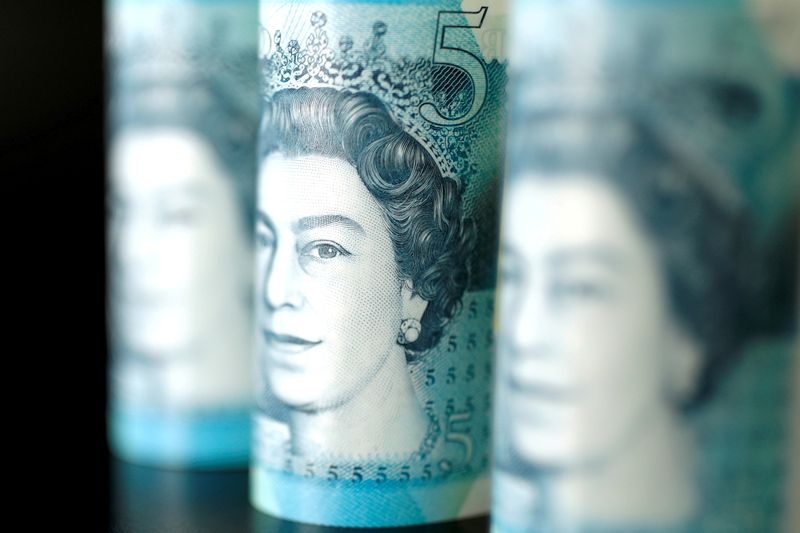LONDON (Reuters) - Sterling rebounded on Thursday, snapping three straight days of losses and was on course to regain the ground lost since the announcement of a UK tax hike to fund health spending and social care.
The pound had touched a two-week low against the dollar on Wednesday and hit its weakest versus the euro since late July when the tax plan was formerly announced on Tuesday.
British lawmakers backed Prime Minister Boris Johnson late on Wednesday, while comments by Bank of England Governor Andrew Bailey put the pound on a recovery track.
Bailey said he was among those who thought the minimum conditions had been reached to consider an interest rate hike as Britain's economy recovers from its nearly 10% pandemic crash in 2020.
Policymakers were split evenly last month between those who felt the minimum conditions for considering an interest rate hike had been met and those who thought the recovery was not strong enough.
Higher taxes could theoretically ease pressure on the Bank of England to begin tightening monetary policy as they might slow down the pace of the economic recovery.
A number of analysts and economists believe, however, that the impact of the measures will be limited and don't amount to a game changer for the currency.
"I don't think it's going to be a major issue for the business cycle", said Kallum Pickering, a senior economist at Berenberg, noting that funding healthcare was an issue the country needed to address sooner or later.
"It seems to me the market isn't viewing it as a big deal and I don't think it's a big deal either", he said, noting yields on UK government bonds had risen slightly and that, given the strength of the recovery, UK consumers would likely be able to cope.
Under the proposal, the rate of National Insurance payroll taxes paid by both workers and employers will rise by 1.25 percentage points, with the same increase also applied to the tax on shareholder dividends.
It is expected to raise 12 billion pounds ($17 billion) a year.
By 1404 GMT, sterling was 0.49% higher at $1.3893, just about its closing price on Monday.

Against the euro, it was up 0.50% to 85.35 pence, its highest since Aug. 19.
The euro was flat against the dollar after the European Central Bank said it would trim emergency bond purchases over the coming quarter, taking a first small step towards unwinding the emergency aid that has propped up the euro zone economy during the pandemic.